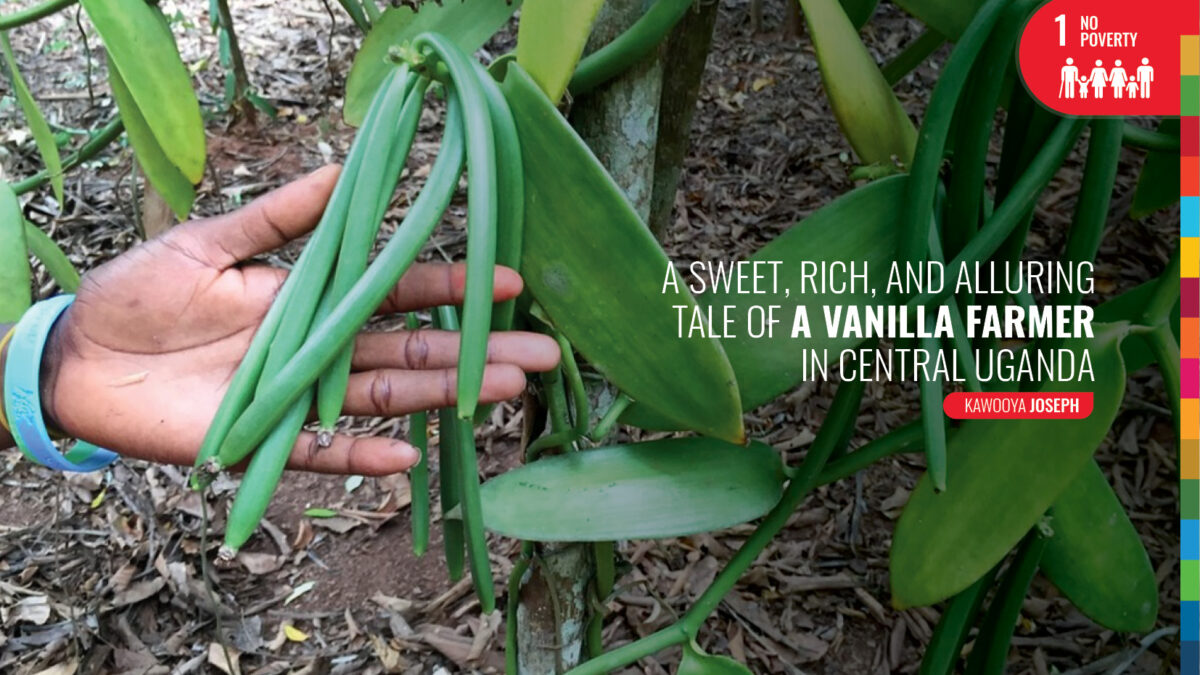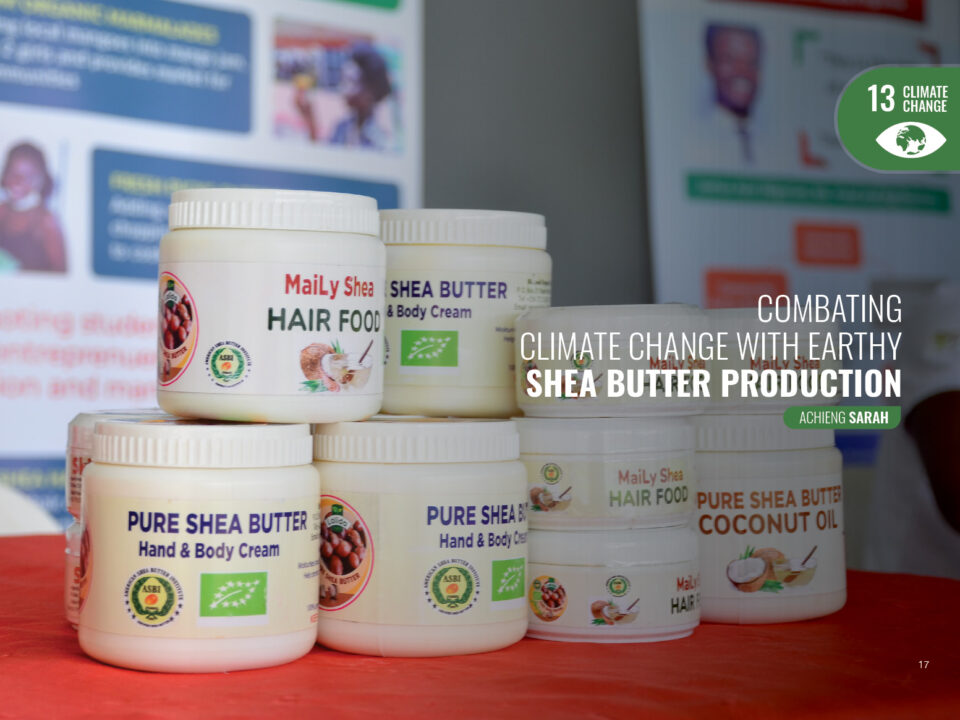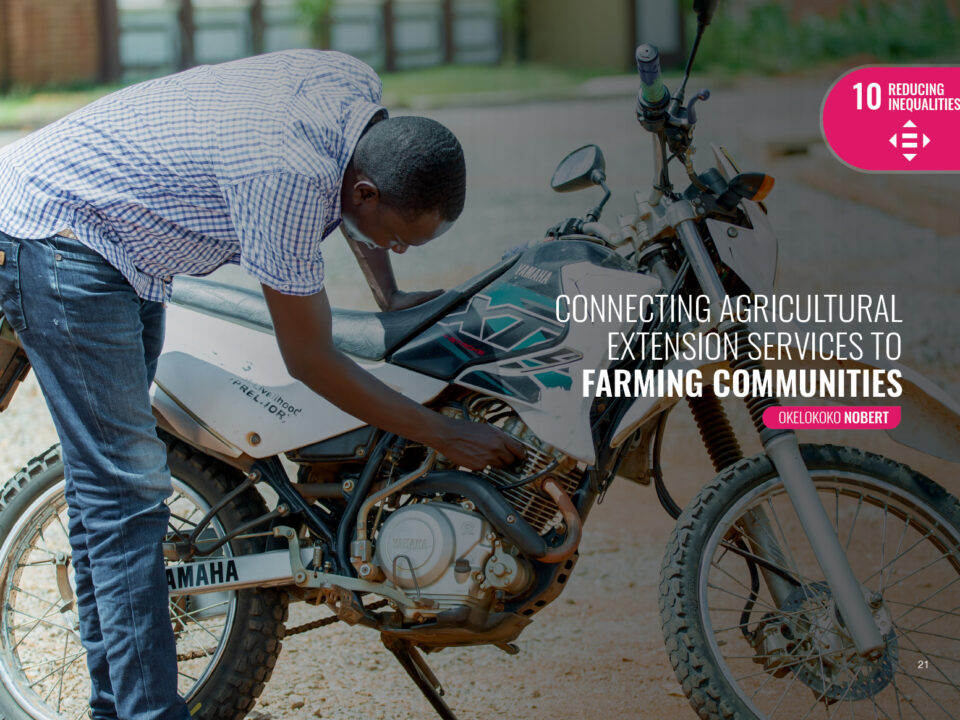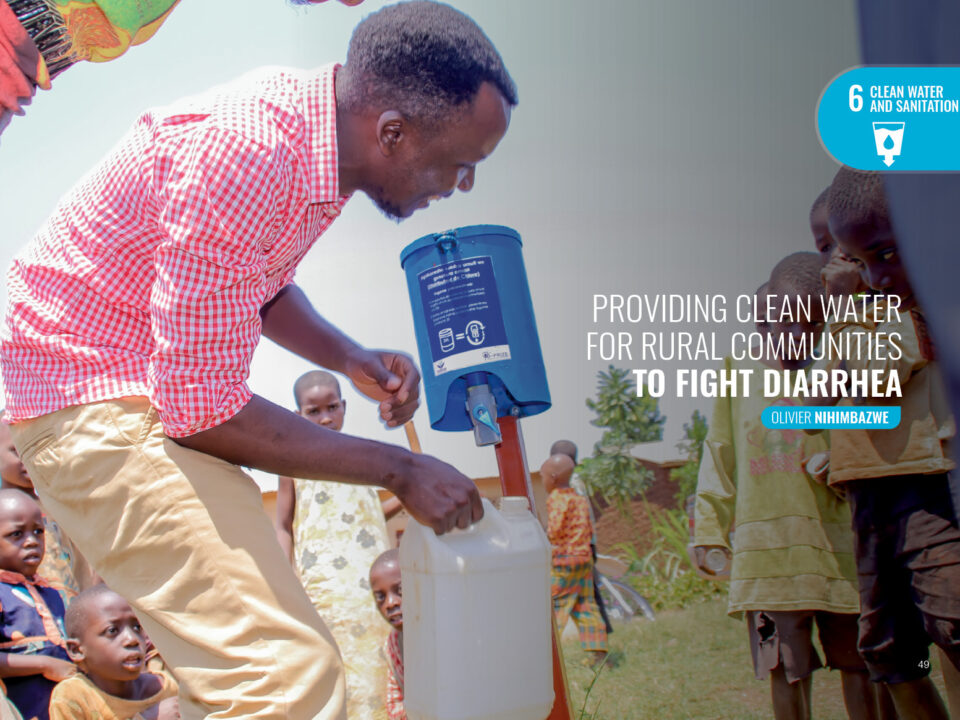A Sweet, Rich, and Alluring tale of a Vanilla farmer in Central Uganda
Mounting up to 15m in length, with thick stems and greenish-to-yellow flowers, the orchard plant climbs and clings to host trees, displaying its long and thin pods of vanilla fruits. Blossoming in the warm climate, vanilla is one of the most important, high-value cash crops in central and western Uganda. This profitable crop is harvested twice a year, from June to July and December to January.
Growing up in a village where his family was primarily dependent on agriculture, Kawooya Joseph began engaging with farming communities at a young age, sharing experiences and learning from Farmers. This involvement fueled his desire to invest in agriculture, propelling him from providing farmers with extension services to launching his Vanilla trading business.
Kawooya, a recent Gulu University graduate under the TAGDev scholarship, founded the Divine Vanilla Enterprise in Bukasa village, Wakiso District, Uganda. The company adds value to plain vanilla products. Kawooya, the CEO of this company, buys vanilla beans from farmers, processes them, and sells them to potential export companies.
While working as a data collection agent for Food Truck Uganda, an agricultural export company, Kawooya was urged to invest in vanilla by Isaac. The vanilla business was too lucrative to pass up, with a kilogram of raw vanilla selling for 250,000 shillings (66 dollars). With little knowledge and advice from Isaac, Kawooya began growing his vanilla on a small scale and connecting farmers to better markets.
As a scholar under the TAGDev program, Kawooya saved up some of his stipends, which he later used as start-up capital for his enterprise. Five years later, the capital has multiplied to be worth over 200,000 Million shillings (53,000$). Vanilla is a highly addictive and lucrative business that commands more than 532,500 Shillings (149$) per kilogram in 2022.
Working with farming communities and providing vanilla farmers with extension and advisory services increased the quantity and quality of vanilla Kawooya observed. Offering farmers higher prices for their harvested vanilla has allowed them to raise their living standards.
The Enterprise currently employs seven people who are well-versed in vanilla production and have the necessary skills and knowledge. The team at Divine Vanilla Enterprise has trained farmers on how to add value to their harvested vanilla, allowing them to fetch more premium prices than they could earn by selling fresh green vanilla beans. Under Kawooya’s leadership, the enterprise provides vanilla farmers with soft loans – loans with no or low interest rates – before harvesting. The farmers use this money to finance their farming activities as well as other household needs such as paying school fees for their children.
Because of the lucrative income generated by vanilla, farming communities continue to experience early harvesting as well as rapid theft due to a lack of banking facilities. Kawooya recommends that commercial financial institutions establish themselves in rural areas to improve cashless transactions and the security of money transactions among farming communities. He also promotes community farm policing to prevent early vanilla bean theft.
According to Kawooya, most educated people dismiss jobs in agriculture because they believe they have no monetary value. Most young people do not plan for alternative employment opportunities after university, which leads to frustration when looking for formal employment. He advises young people to develop a saving culture while still in university and to invest their savings. He observes that investing in agriculture produces profitable financial returns with the right short-term skill enhancement. Kawooya did not have to look for work like most young people; instead, he is now self-employed and hiring others.
Kawooya hopes to expand his business and employ over 200,000 people over the next five years. He intends to expand his vanilla production on a large scale, not only to buy from farmers but also to increase the quantity of supply, allowing him to engage in the export business. He intends to pursue a master’s degree to supplement his experience in the agricultural sector.
These Stories are a result of the documentation from the RUFORUM and Mastercard Partnership under the TAGDEV Project, Gulu University: https://ruforum.wordpress.com/category/tagdev-project/.




